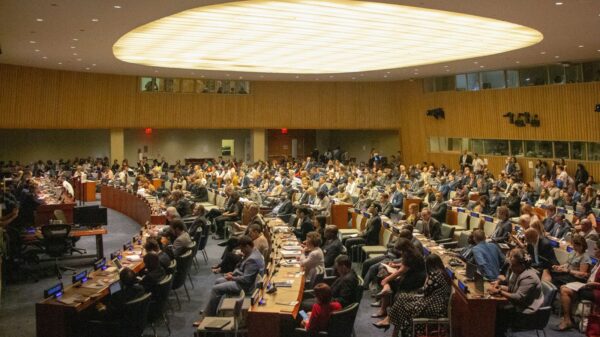Technology is just a tool. AI, or artificial intelligence, is just technology that, like any other tool, is designed to perform specific tasks. Technology is neither good nor bad inherently. Instead, its impact is determined by its relationship to humans and the context in which it is used. Humans create, program, and deploy technology and must decide how to use it and what data to feed it. As a result, human decisions, not technology, ultimately determine technology’s ethical and social implications.
In Africa, poverty is often the result of broader societal structures and institutions that perpetuate inequality and marginalization, such as colonialism, corruption, and structural disparities, rather than individual circumstances or choices. For example, colonialism’s legacy in Africa created economic and social systems that benefited colonizers and African elites while marginalizing and impoverishing most of the colonized country’s African population. In addition, Western influence in the African governance system has led to corruption and the mismanagement and diversion of public resources, such as a lack of access to education, healthcare and other essential services resulting in the gut-wrenching cycle of poverty for millions of people on the African continent.
The history of AI in Africa is relatively short. However, the technology is rapidly gaining traction on the continent. There is significant potential for AI to positively impact people’s lives in Africa with the development of AI hubs and a growing focus on utilizing AI for social impact. Many African AI projects have focused on addressing other social issues such as healthcare, education, and agriculture. For instance, with Africa’s population expected to reach 2.6 billion by 2050, agriculture and food systems must undergo a transformative process with technological integration. AI has played a significant role in aiding food security on the continent, with farmers using artificial intelligence, such as robotics, sensors, and soil sampling, to collect data from farm management systems for better processing and analysis. Some farmers in Kenya use near-infrared cameras mounted on drones to identify pests and diseases.
Although AI does not cause poverty in Africa, its misuse or mismanagement can cause harm to preexisting poverty conditions. Furthermore, even though artificial intelligence offers numerous advancements, foreign companies frequently lead the development and deployment of AI technology in Africa, resulting in a technological divide between those with access to AI technology and those without. Furthermore, AI-powered robots require significant investment in research and development, so there needs to be a greater emphasis on the governmental relationship between AI and technology to aid impoverished people.
Mobile banking is one of the biggest double edged swords to emerge from this rapid movement towards reliance on technology. Mobile payment services are becoming increasingly popular as a cash substitute for people on the continent. Recent studies have shown that transactions in Sub-Saharan Africa account for nearly 70 percent of the $1 trillion transacted through mobile money globally, which is significant when taking into consideration that in many African countries, many people do not have bank accounts; therefore, mobile banking helps with financial inclusion as well as addressing their material needs.
Mobile banking is just one example of how the tools that we have at our disposal can be transformative as it provides cheap, immediate, and accessible financial services and inclusion to people en mass. But on the other hand, access to technology can either alleviate or exacerbate existing economic and social inequalities and worsen poverty. Take, for instance, Kenya, where access to mobile money resulted in removing 196,000 households from extreme poverty, which not only aided in the progression of the country’s economy by increasing per capita household consumption and savings but also amplified financially independent African women as the effects of mobile banking were most life-changing in female-headed households.
We are not headed for a digital world; we have already arrived at our destination, and how we choose to navigate our relationship with technology during this technological revolution, whether it is for the people or not, will either make or break the future of Africa.
Copy edited by Chanice McClover-Lee













